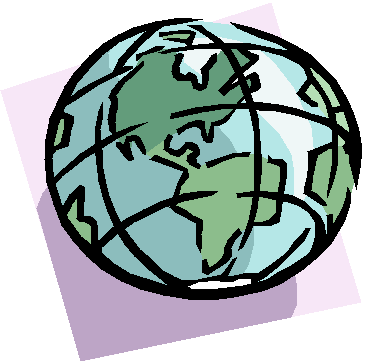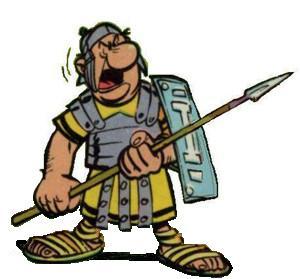Rome was a very important civilisation. It existed from 753 BC to 476 AD.
At first, Rome's way of government was Monarchy (753 BC - 509 BC), then the Republic (509 BC - 27 BC) and, finally, the Empire (27 BC - 476 AD).
The Monarchy
During the monarchy, Rome was governed by a king. He was chosen by patricias.
He was helped by the senate, an assembly formed by senators, who where the heads of the most important families.
The Republic
There were 3 main institutons:
- The comitias: assemblies where Roman citizens met to vote for laws and elect magistrates.
- The magistratus: they held political, military and sometimes religious powers. They were elected for a year. The highest magistrates were 2 consuls who controlled politial life and the army.
- The senate: this was the most important institution. It established laws, derected foreign policy and gave instructons to the magistrates.
During the Republic, society was divided into 2:
- Patricians: they were a minority formed by the richest families. They claimed to be the descendants of the founders of Rome. They could own property and had political rights.
- Plebeians (plebs): they were all the other people. Initially, they didn't have rights but they fought for equal rights. In 5th century BC, they had a representative in the senate, the tribune of plebeians. By the 4th century BC the could be magistrates ans senators.
Rome conquered many territories, it extended its power around the Mediterranean.
In the 1st century, they formed triunvirates (alliances of three men who share power):
- The 1st " was formed by Julius Caesar, Crassus and Pompey. But the soon disagreed and a civil war broke out, and Julius Caesar won it. He was prolaimed perpetual dictator, he was assesinated by a group of senators.
- The 2nd " was formed by Lepidus, Octavian and Mark Antony.(Octavian took control after several wars, and in 27 BC the Senate gave him maximum powers)
The Empire
In 27 BC, Octavian became known as Augustus. He eliminated his enemies and pacified the situation. Then, he introduced a new way of government, the Empire.
Augustus was the 1st emperor of Rome. He presided over the senate, he was the head of the army and also the highest religious leader. He directed foreign policy, dictated laws and decided upon taxes.
In 1st and 2nd centuries AD, the Roman world reached its peak. Trade and economy grew. Many buildings and public works were constructed in Rome and other cities.
The Roman Empire's decline
In the 3rd century, the Roman Empire suffered a crisis. Peasants and soldiers revolted and anachy spread. The cities were attacked. The emperors couldn't solve this problems.
Germanic tribes attacked from the north and, Persians from the east.
In the 4th century, the emperors Diocleitan and Constantine came to power they introduced reforms, economy recovered, frontiers were strengthened, tolerated Cristianity, moved the capital to Constaninople and improved bureaucracy.
In 395, the Empire was divided into 2, so it was better defended. The Western Roman Empire's capital was Rome and, the Eastern Roman Empire's capital was Costantinople.
The Western Roman Empire fell in 476 but, the Eastern Roman Empire mantained for another 1.000 years but, known as the Byzantine Empire.


